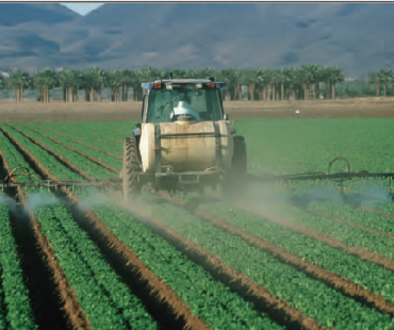8 Questions Wall Street Needs to be Asking Food Companies

This morning, headlines announced that Denise Morrison is stepping down as the CEO of Campbell’s. What a huge loss to the food industry. Shareholders were quick to flash a chart of the share price. No surprise there. Turning around a deeply entrenched and heavily subsidized industry like the food industry is not going to happen quickly.
Unfortunately, the writing has been on the wall for the last few months.
The problem is that Wall Street still measures these companies and CEOs using 1985 metrics.
The game is changing, and Wall Street needs to get with it, too.
Quarterly earnings are a terrible metric, when a fundamental shift needs to happen to an entrenched and deeply subsidized supply chain.
Wall Street needs modern metrics if they are going to evaluate 21st century food companies. This is a big conversation that has to happen now in order to grow organic.
According to Forbes, “it has been widely reported that mothers control 85% of household purchases and have a U.S. spending power of $2.4 trillion. Within this segment are tens of millions of millennial moms. In fact 83% of new moms are millennials, according to a study conducted by BabyCenter– they give birth to about 9,000 generation Alpha babies each day.”
Adweek and Trybe have also chimed in, saying: “80% of millennial mom says that safety is a top priority for their family. They cite safety as a higher priority than value or price. Additionally, around 50% of millennial moms list that they favor pure, wholesome ingredients as a key deciding factor when comparing brands. In essence, millennial moms value the quality of a brand over quantity, and if brands can’t illustrate that, it will be hard to appeal to this segment.”
And don’t whitewash it; by the year 2020, half of all children in the U.S. will be non-white. On top of that, 8 in 10 households are now purchasing at least some organic. With a supply chain of less than 1% of all U.S. farmland as organic, something has to change.
Food companies, the big CPG brands, have been slow to meet these changing needs. Many of them fought the consumer for years. Companies like Kroger stepped in and launched private label brands and quickly won the hearts and wallets of 21st century families. At Kroger, “20 million households purchased items from its Simple Truth brand line last year, and private-label items accounted for nearly 28% of items sold in the third quarter, the company said, accounting for 26% of sales dollars”.
So what do the food companies need to be doing?
Here are 8 questions Wall Street should be asking food companies right now:
- With over 80% of American households now purchasing some organic, what percentage of your product portfolio is certified USDA Organic?
- What percent of your portfolio contains Monsanto’s Roundup Ready soy and corn, since these genetically engineered ingredients are also an indicator of exposure to glyphosate?
- In light of recent lawsuits over glyphosate use, what percentage of your product portfolio is exposed to glyphosate?
- What plans do you have to grow your organic product offerings?
- Less than 1% of US farmland is certified as organic. What is your company doing to convert farmland to ensure a stable pipeline and organic supply chain? Kashi has a certified transition program in place to help farmers convert. Would you embrace this model by Kellogg’s to ensure that your supply can meet growing consumer demand?
- From where are you importing organic ingredients until you build out your pipeline?
- What program do you have in place to help the farmers you source from convert their farms to organic?
- Food security is no longer simply about calories, it is also about health. What are you doing to communicate that to your consumers in order to ensure product loyalty?
With demand for organic products far outpacing the demand for conventional, Wall Street needs to be asking these multinational food companies and their CEOs what they are doing to build out their supply chains to ensure that they have the ingredients to meet the demand. It takes just three years to convert farmland to organic. Millennial parents represent $200 billion in purchasing power. As this demographic grows, will companies have the supply to meet that demand?
It’s an important question for shareholders, stakeholders and spoon holders.





